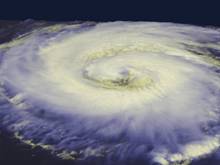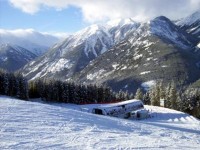
|
Jun 19, 2007
Comment on the Nature Weblog By Kevin Trenberth Entitled “Predictions of Climate”
Roger Pielke Sr. Climate Science Weblog
There is a remarkable weblog on Nature from an unexpected source that supports these views. The weblog is presented by one of the Lead Authors of Chapter 3 the IPCC WG1 report [Kevin Trenberth] and is in direct conflict with statements that climate science is settled. The Trenberth weblog reads:
I have often seen references to predictions of future climate by the Intergovernmental Panel on Climate Change (IPCC), presumably through the IPCC assessments (the various chapters in the recently completed Working Group I Fourth Assessment report ican be accessed through this listing). In fact, since the last report it is also often stated that the science is settled or done and now is the time for action.
In fact there are no predictions by IPCC at all. And there never have been. The IPCC instead proffers “what if” projections of future climate that correspond to certain emissions scenarios. There are a number of assumptions that go into these emissions scenarios. They are intended to cover a range of possible self consistent “story lines” that then provide decision makers with information about which paths might be more desirable. But they do not consider many things like the recovery of the ozone layer, for instance, or observed trends in forcing agents. There is no estimate, even probabilistically, as to the likelihood of any emissions scenario and no best guess.
Even if there were, the projections are based on model results that provide differences of the future climate relative to that today. None of the models used by IPCC are initialized to the observed state and none of the climate states in the models correspond even remotely to the current observed climate. In particular, the state of the oceans, sea ice, and soil moisture has no relationship to the observed state at any recent time in any of the IPCC models. There is neither an El Nińo sequence nor any Pacific Decadal Oscillation that replicates the recent past; yet these are critical modes of variability that affect Pacific rim countries and beyond. The Atlantic Multidecadal Oscillation, that may depend on the thermohaline circulation and thus ocean currents in the Atlantic, is not set up to match today’s state, but it is a critical component of the Atlantic hurricanes and it undoubtedly affects forecasts for the next decade from Brazil to Europe. Moreover, the starting climate state in several of the models may depart significantly from the real climate owing to model errors. I postulate that regional climate change is impossible to deal with properly unless the models are initialized.
For Roger’s full weblog and comments see full weblog here.
Jun 18, 2007
Local Scientist Calls Global Warming Theory ‘Hooey’
The Capital Times
Reid Bryson, known as the father of scientific climatology, considers global warming a bunch of hooey. The UW-Madison professor emeritus, who stands against the scientific consensus on this issue, is referred to as a global warming skeptic. But he is not skeptical that global warming exists, he is just doubtful that humans are the cause of it. There is no question the earth has been warming. It is coming out of the “Little Ice Age,” he said in an interview this week. “However, there is no credible evidence that it is due to mankind and carbon dioxide. We’ve been coming out of a Little Ice Age for 300 years. We have not been making very much carbon dioxide for 300 years. It’s been warming up for a long time,” Bryson said. The Little Ice Age was driven by volcanic activity. That settled down so it is getting warmer, he said.
Humans are polluting the air and adding carbon dioxide to the atmosphere, but the effect is tiny, Bryson said. “It’s like there is an elephant charging in and you worry about the fact that there is a fly sitting on its head. It’s just a total misplacement of emphasis,” he said. “It really isn’t science because there’s no really good scientific evidence.” Just because almost all of the scientific community believes in man-made global warming proves absolutely nothing, Bryson said. “Consensus doesn’t prove anything, in science or anywhere else, except in democracy, maybe.”
See full story here.
Jun 18, 2007
Climate Change, Witch Hunts, Beer and Wine
By Pfister and Brázdil in Climate Change
Some university skeptics and state climatologists are feeling like they are being victims of ‘witch hunts’, attempts to purge the institutions or states of skeptics that may impede funding efforts or desired actions to deal with preceived global warming. Literal ‘witch hunts’ in the little ice ages it appears occurred. It appears the cold also may have led to the eastern European preference for beer over wine.
A paper, Climatic Variability in Sixteenth-Century Europe and its Social Dimension: A Synthesis by Pfister and Brázdil in Climatic Change, Volume 43, Number 1, September 1999 had reconstructed some of the changes and extremes in the little ice age. Here is a section of the abstract.
The deterioration of summer climate in the late sixteenth century initiated a second period of enlarged glaciers in this millennium (the first having been in the fourteenth century) which did not end until the late nineteenth century.
The analysis of the effects of climate on rye prices in four German towns involved a model that included monthly temperatures and precipitation values known to affect grain production. The correlation with rye prices was found significant for the entire century and reached its highest values between 1565 and 1600. From the 1580s to the turn of the century wine production slumped almost simultaneously in four regions over a distance of 800 kilometers (Lake Zurich to western Hungary). This had far-reaching consequences for the Habsburg treasury and promoted a temporary shift in drinking habits from wine to beer. Peasant communities which were suffering large collective damage from the effects of climatic change pressed authorities for the organization of witch-hunts. Seemingly most witches were burnt as scapegoats of climatic change. See full abstract here
Jun 13, 2007
New York City Urged to Prepare for Major Hurricane
AP News New York City
Homeland Security Secretary Michael Chertoff warned Monday that a city on continuous alert for terror attacks also must brace itself for a natural disaster — a hurricane powerful enough to cause serious flooding in lower Manhattan and elsewhere. “It’s always a little odd being in New York and talking about hurricanes,” Chertoff said after touring a new command center at the Office of Emergency Management in Brooklyn. Still, he added, a hurricane “would be an extraordinarily devastating blow to the city.” Weather experts have said the nation’s largest city is about due for a major hurricane with 130 mph winds and a 30-foot storm surge that could cause the Hudson and East Rivers to overflow.
The storm threatens to inflict more than $100 billion in economic losses while forcing the evacuation of 3 million people — more than six times the population of pre-Katrina New Orleans. Historically, the city endures a hurricane roughly once every 90 years. The last major New York-area hurricane was the Long Island Express of 1938, which caused 700 deaths along the Eastern seaboard. Last year, the city unveiled a new hurricane plan to evacuate 3 million people while providing shelter for more than 600,000 others. OEM officials estimated the preparedness costs at up to $30 million. Chertoff said New York’s planning was “second to none.”
See blog from May 18, 2007 where we showed why the risk this year might indeed be enhanced.

Jun 08, 2007
Record Snowfall Brings Best Year on Record for Whistler
Michael Kane, Vancouver Sun, June 8, 2007
A blockbuster summer followed by the highest number of winter visitors since 9/11 have combined to give Whistler its best year on record, Tourism Whistler announced Thursday. Mother Nature helped by delivering a record-breaking snowfall last November which continued to accumulate to more than 14 metres (46 feet) over the winter—more than 40 per cent above the average.

American skiers and snowboarders responded by increasing visits and Europeans joined the party when they realized snow was scarce at home, said Arlene Schieven, marketing vice-president with Tourism Whistler. See full story here.
As we noted in the blog story Northwest Snow Drought Caused by Natural Factors and For That matter May be Over this is no surprise and may be signs of what’s to come. One more note, with the shift north of the storm track this year, it was not surprising southern California had a dry season. In fact, as of June 1, Los Angeles was heading towards the driest “wet season - July 1-June 30”, on record. See NWS LA Drought Summary.
|
|
|
|




